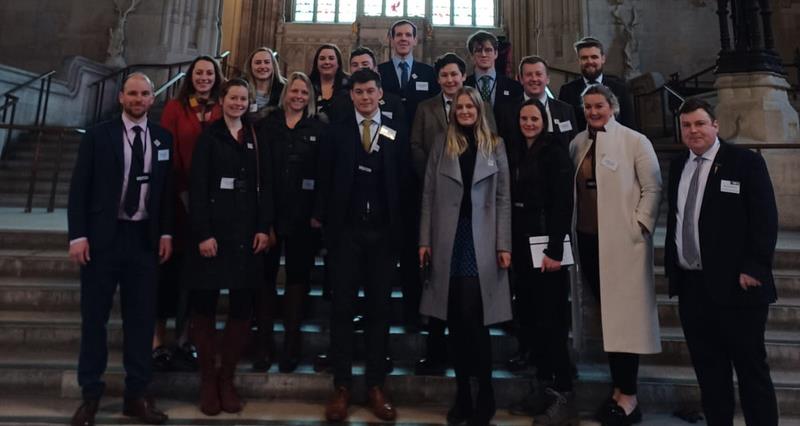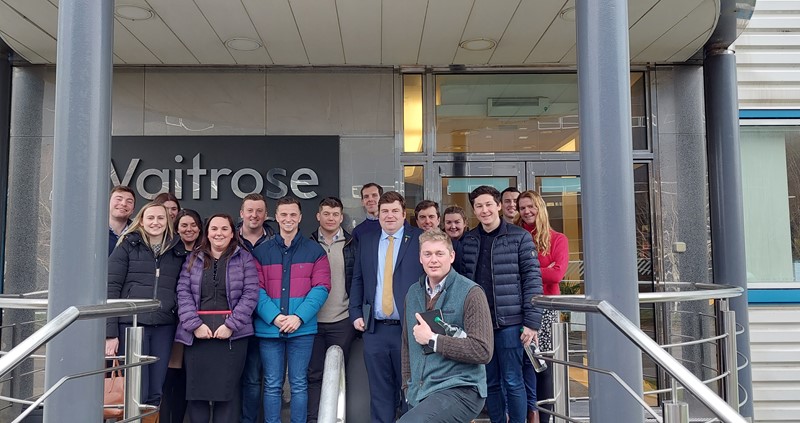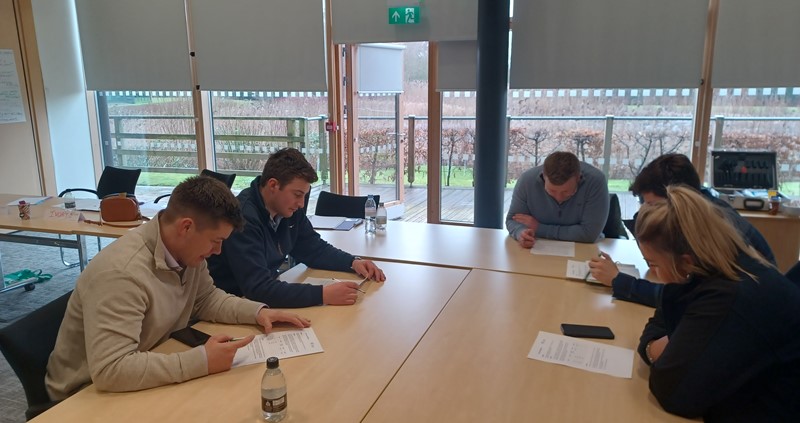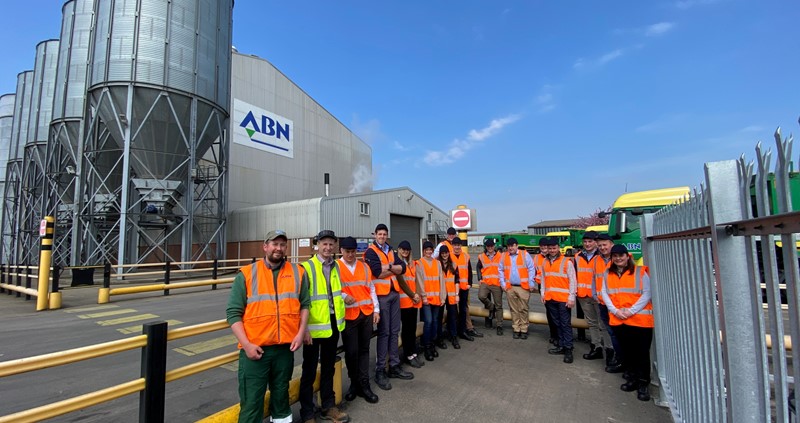The first day began at the NFU’s London offices, before taking the short walk to the Houses of Parliament where we were provided with an entertaining tour of the building by an MP’s special adviser. The tour began in Westminster Hall before moving on through the building including the House of Lords, as well as providing an opportunity to attend the viewing area of the House of Commons, while taking in the beautiful artwork and history of the building.
Raising awareness around key industry issues
Some PIP members had been lucky enough to secure meetings with their local MPs and these provided the perfect opportunity to put some of the training of previous PIP events to the test, while seeking to raise awareness around key issues facing the poultry industry at a difficult time.
I’d been fortunate enough to secure a meeting with my local Sedgefield MP Paul Howell and, forever the cynic, I initially attended the meeting with low expectations. However, I was pleasantly surprised at just how receptive Paul was to the issues I raised. The level of interest that he showed to those issues was further borne out when, a couple of days later, I learned that he’d met with Mark Spencer MP, the Minister of State for Food, Farming and Fisheries, and raised some of the issues we’d discussed.
Speaking to other members of the PIP cohort, it seemed as though their own MPs had been equally receptive and this went a long way in highlighting the importance of engaging with our local politicians. It also emphasised the importance of the lobbying work which the NFU does on behalf of farmers like you and I across the wider industry.
During the afternoon, we were provided with the opportunity to meet with a number of Defra officials, both at the NFU’s offices and at Defra’s impressive head offices at Marsham Street.
This included meetings with Lord Benyon, the Minister of State for Biosecurity, Marine and Rural Affairs; Gordon Hickman, Head of Exotic Disease Policy; and John Powell, the Head of the Agricultural Sectors team at Defra.
These meetings provided another opportunity for members of the PIP cohort to raise important issues currently facing the poultry sector. Issues that included, but were not limited to, avian influenza, energy, planning and access to labour.
It was notable that while this provided us with an opportunity to lobby individuals right at the heart of policy making, they were also appreciative of the chance to speak directly to individuals involved in the industry. It again provided an interesting opportunity to see how policy is made, decisions are taken, and the importance that we as farmers ensure as an industry our voice is heard.
Meeting with industry innovators
The second day of our London trip took us out of Westminster and to a city farm in Waterloo, where we got to see the important work which charities such as Oasis Farm and Jamie’s Farm do in providing a connection between inner city schools and communities and the farming sector.
This was followed by a meeting at the NFU offices with Keiran Whitaker, CEO and founder of Entocycle.
For many this was perhaps the most interesting meeting of the two-day trip. Entocycle describe themselves as an insect technology company seeking to accelerate a global shift towards sustainable proteins using insect technology and innovation.
While Keiran was quick to point out that they did not hold the key to a soya-free diet, it was clear that they represented a step in the right direction.
This perhaps represents the direction which the industry needs to go in the future, as we increasingly battle with the challenges of climate change and increasing customer demands for sustainability within the UK food supply chain. However, it appears we’re already falling behind our European counterparts both in terms of legislation and investment in what is likely to be a growing and important farming sector.
If, in this post-Brexit world, we’re going to continue to pride ourselves in the quality and high standards of the British farming sector, we need to seek to lead the way both domestically and internationally.
This is going to be ever more important in an increasingly uncertain world as we face the challenges of climate change as well as global geopolitics.




